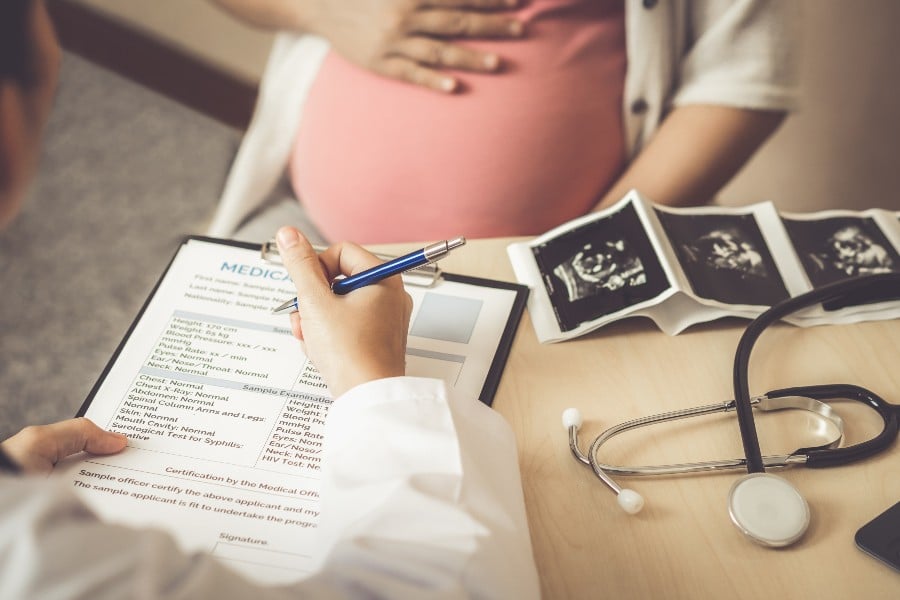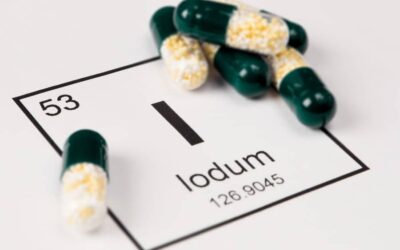Focus on the link between pregnancy and thyroid disorders.
Thyroid and infertility
Thyroid disorders are among the most common endocrine disorders in women of reproductive age. They manifest themselves by hormonal changes that affect menstrual cycles and ovarian activity. In term, this can cause an obstacle to fertility.
Hypothyroidism could also be responsible for troubles in conceiving. Indeed, as this condition gives rise to an abnormal elevation of the TSH level, it increases the intensity and frequency of menstruation, which can lead to an absence of ovulation. In order to increase the chances of conceiving in women of childbearing age, the American Thyroid Association recommends maintaining a TSH level below 2.5 mU/l.
Read also : Discover how hypothyroidism affects men differently: symptoms and treatment
Can a woman get pregnant after thyroidectomy?
According to specialists, thyroidectomy does not harm fertility, provided that the intervention took place in good conditions and that the patients have good postoperative care. Today, advanced medical technologies such as the FLUOBEAM® LX device offer more precision to practitioners during the surgery. The parathyroid glands are detected by autofluorescence during the operation, which makes the surgical gesture more precise.
Thyroid disorders during pregnancy
All along the pregnancy, women’s thyroid activity is closely monitored. This is done to detect as early as possible hyperthyroidism or hypothyroidism, which could lead to harmful consequences on the mother and the future baby.
Hyperthyroidism during pregnancy
In case of hyperthyroidism, a special diet is usually prescribed by doctors.
Hypothyroidism during pregnancy
Unlike hyperthyroidism, in hypothyroidism the thyroid gland does not produce enough hormones. This condition is manifested, in most cases, by dry skin, significant weight gain and a feeling of slow heartbeat. Goiter can also occur due to iodine deficiency. The consequences of hypothyroidism can be serious. Indeed, if this condition is not detected on time, the unborn child is exposed to the risk of delayed psychomotor and intellectual development.
Once the patient takes the prescribed medication, a careful monitoring of hypothyroidism is important. Regular blood tests will be prescribed for this purpose during and after pregnancy.
Read also : Everything you need to know about thyroid blood tests
How are thyroid problems treated in pregnant women?
During pregnancy, radioactive iodine treatments are not recommended. On the other hand, synthetic antithyroid drugs and beta-blockers are prescribed in order to restore hormonal balance. A work stoppage for pregnant women and rest are also highly recommended.
The administration of these treatments is subject to close monitoring because of a possible interaction with the fetus.
How can thyroid disorders be prevented during pregnancy?
During pregnancy and outside pregnancy, thyroid disorders can be detected easily. As part of a self-diagnosis, the following symptoms should alert the patient:
- A sudden and unexplained thirst
- Rapid and significant weight loss despite an unchanged appetite
- An important heat sensitivity
- Hot flashes and excessive sweating
- Mood disorders
- Insomnia
- Hyperactivity
- Stress and anxiety
- An increase in the volume of the neck which could be due to goiter
- Bulging eyes
- An increase in stool frequency
- Diarrhea
- Palpitations
- Tremors
- Decreased frequency of periods or the absence of periods
As soon as a thyroid disorder is suspected, a thyroid check-up is prescribed. Its purpose is to control TSH levels.
Current health recommendations recommend early screening of women at high risk of developing thyroid disorders during pregnancy. Thus, women with a personal or family history of thyroid disorders, diabetes or autoimmune diseases are subject to increased monitoring for nine months.
As soon as a thyroid disorder is suspected, a thyroid check-up is prescribed. Its purpose is to control TSH levels.
Current health recommendations recommend early screening of women at high risk of developing thyroid disorders during pregnancy. Thus, women with a personal or family history of thyroid disorders, diabetes or autoimmune diseases are subject to increased monitoring for nine months.
Good to know
The right management of thyroid disorders can improve the care of the pregnant woman and her future baby during pregnancy and post pregnancy.
Women with thyroid disorder can become pregnant and carry a pregnancy to term, provided that these conditions are well taken care of. During pregnancy, monitoring of hypothyroidism and hyperthyroidism is important to ensure the good health of the mother and her future baby.




